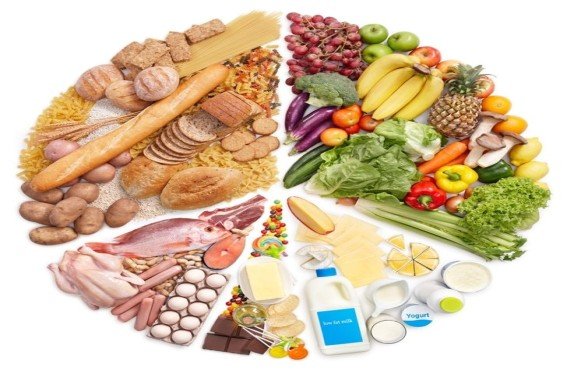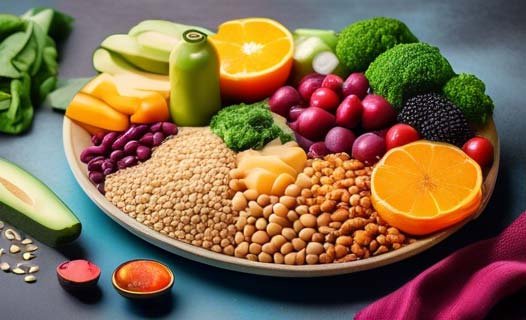
The Essentials of a Balanced Diet for Mental Wellness
In today’s fast-paced world, the importance of mental health is increasingly recognized, prompting a shift in focus towards holistic approaches to well-being. While traditional interventions such as therapy and medication remain crucial, emerging research suggests that our dietary choices play a pivotal role in supporting mental wellness. This article explores the intricate relationship between nutrition and mental health, emphasizing the significance of a balanced diet in nurturing cognitive function and emotional stability.
The Impact of Nutrition on Mental Health:
Our bodies are intricate systems where every component is interconnected. What we consume directly influences not only our physical health but also our mental and emotional well-being. The concept of “food as medicine” is gaining traction as scientists uncover the profound effects of nutrition on brain function and mood regulation. From neurotransmitter production to neuroplasticity, the nutrients we provide our bodies fuel essential processes that underpin mental wellness.
Unlocking the Power of a Balanced Diet:
At the heart of promoting mental health lies the concept of balance. A balanced diet encompasses a diverse array of nutrients, ensuring that our bodies receive the vitamins, minerals, and antioxidants necessary for optimal functioning. The recommendations outlined by health authorities serve as a guide to crafting meals that support both physical and mental well-being. By prioritizing whole, nutrient-dense foods and minimizing the consumption of processed fare, individuals can create a foundation for sustained mental wellness.
Navigating Dietary Patterns:
The study featured in Nature Mental Health offers valuable insights into the relationship between dietary patterns and mental health outcomes. By examining the food preferences of a large cohort, researchers identified patterns that correlate with improved cognitive function and mood stability. While specific diets may vary in their composition, the overarching theme of balance emerges as a common thread linking dietary choices to mental well-being.
Understanding the Gut-Brain Connection:
In recent years, research has increasingly focused on the gut-brain axis—a bidirectional communication system between the gut microbiota and the brain. Disruptions in gut health have been linked to a range of mental health disorders, including depression and anxiety. By nurturing a diverse and thriving gut microbiome through dietary interventions such as consuming probiotic-rich foods and prebiotic fibers, individuals can support their mental health from the inside out.
Embracing Personalized Nutrition:
While general dietary guidelines provide a framework for healthy eating, it’s essential to recognize that nutrition is not a one-size-fits-all endeavor. Factors such as genetics, lifestyle, and individual preferences shape our dietary needs and preferences. Embracing personalized nutrition involves tuning into our body’s signals, experimenting with different foods, and cultivating a mindful approach to eating that honors our unique nutritional requirements.

Balanced Nutrition: Building a Foundation
A balanced diet serves as the cornerstone of optimal health, providing the essential nutrients our bodies and minds need to thrive. But what exactly constitutes a balanced diet, and how can we ensure we’re nourishing ourselves adequately?
A balanced diet is characterized by variety, moderation, and mindful choices. It encompasses a diverse array of foods from all food groups, each offering unique nutritional benefits. Here’s a breakdown of what should be included in a balanced diet:
- Fruits and Vegetables: These colorful staples should form the foundation of every meal. Rich in vitamins, minerals, fiber, and antioxidants, fruits and vegetables support overall health and provide protection against chronic diseases. Aim to consume a rainbow of produce, including leafy greens, berries, citrus fruits, cruciferous vegetables, and more.
- Whole Grains: Whole grains such as oats, quinoa, brown rice, and whole wheat bread are excellent sources of complex carbohydrates, fiber, and essential nutrients. They offer continuous energy, help stabilize blood sugar levels, and promote digestive well-being. Choose whole grains over refined grains to maximize nutritional benefits.
- Protein Sources: Protein plays a crucial role in tissue repair and building, bolstering the immune system, and preserving muscle mass. Incorporate a variety of protein sources into your diet, including lean meats, poultry, fish, eggs, legumes, tofu, tempeh, nuts, and seeds. Aim for a balance between animal and plant-based protein options.
- Dairy or Dairy Alternatives: Dairy products such as milk, yogurt, and cheese are rich in calcium, vitamin D, and protein, supporting bone health and overall well-being. However, if you prefer non-dairy alternatives, choose fortified options such as almond milk, soy milk, or oat milk to ensure adequate nutrient intake.
- Healthy Fats: Don’t shy away from fats—they’re essential for brain health, hormone production, and nutrient absorption. Opt for sources of healthy fats such as avocados, nuts, seeds, olive oil, and fatty fish like salmon and sardines. Reduce the intake of saturated and trans fats commonly present in processed foods and fried dishes.
- Hydration: Water is essential for numerous bodily functions, including digestion, circulation, temperature regulation, and cognitive function. Aim to drink at least 6 to 8 glasses of water per day, and hydrate with herbal teas, infused water, and hydrating foods like fruits and vegetables.
- Moderation: While prioritizing nutrient-dense foods, it’s also important to enjoy treats in moderation. Indulge in your favorite desserts, snacks, and comfort foods occasionally, but be mindful of portion sizes and frequency of consumption. Balance is key to maintaining a healthy relationship with food.








